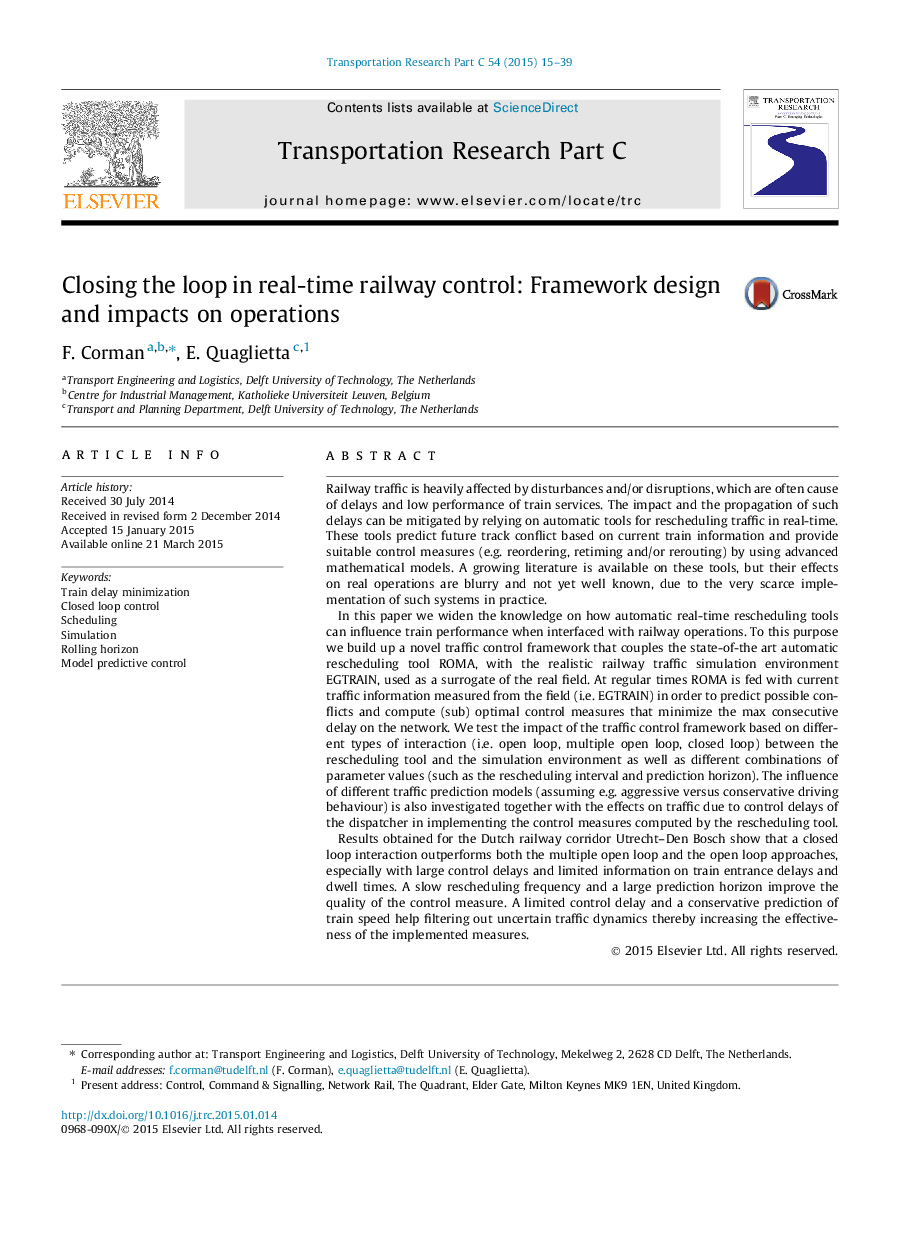| Article ID | Journal | Published Year | Pages | File Type |
|---|---|---|---|---|
| 524919 | Transportation Research Part C: Emerging Technologies | 2015 | 25 Pages |
•We analyse the interactions between automatic rescheduling and railway operations.•We use the concepts of open loop, multiple open loop, and closed loop control schemes.•Considering typical situations of real traffic, missing or wrong information, disturbances.•Systematic analysis of rescheduling parameters, prediction models and control delays.•Closing the loop is far superior to the myopic routine FCFS and open loop control.
Railway traffic is heavily affected by disturbances and/or disruptions, which are often cause of delays and low performance of train services. The impact and the propagation of such delays can be mitigated by relying on automatic tools for rescheduling traffic in real-time. These tools predict future track conflict based on current train information and provide suitable control measures (e.g. reordering, retiming and/or rerouting) by using advanced mathematical models. A growing literature is available on these tools, but their effects on real operations are blurry and not yet well known, due to the very scarce implementation of such systems in practice.In this paper we widen the knowledge on how automatic real-time rescheduling tools can influence train performance when interfaced with railway operations. To this purpose we build up a novel traffic control framework that couples the state-of-the art automatic rescheduling tool ROMA, with the realistic railway traffic simulation environment EGTRAIN, used as a surrogate of the real field. At regular times ROMA is fed with current traffic information measured from the field (i.e. EGTRAIN) in order to predict possible conflicts and compute (sub) optimal control measures that minimize the max consecutive delay on the network. We test the impact of the traffic control framework based on different types of interaction (i.e. open loop, multiple open loop, closed loop) between the rescheduling tool and the simulation environment as well as different combinations of parameter values (such as the rescheduling interval and prediction horizon). The influence of different traffic prediction models (assuming e.g. aggressive versus conservative driving behaviour) is also investigated together with the effects on traffic due to control delays of the dispatcher in implementing the control measures computed by the rescheduling tool.Results obtained for the Dutch railway corridor Utrecht–Den Bosch show that a closed loop interaction outperforms both the multiple open loop and the open loop approaches, especially with large control delays and limited information on train entrance delays and dwell times. A slow rescheduling frequency and a large prediction horizon improve the quality of the control measure. A limited control delay and a conservative prediction of train speed help filtering out uncertain traffic dynamics thereby increasing the effectiveness of the implemented measures.
